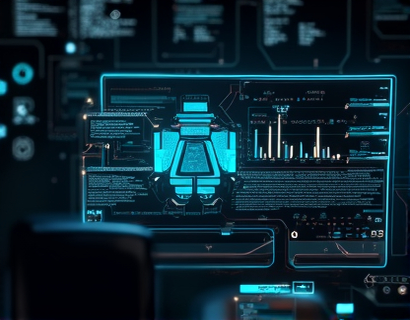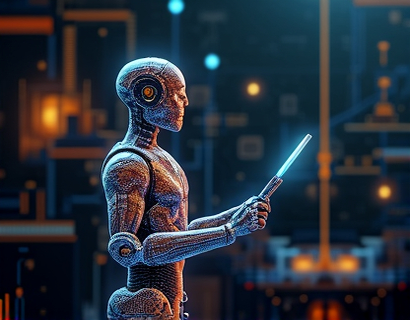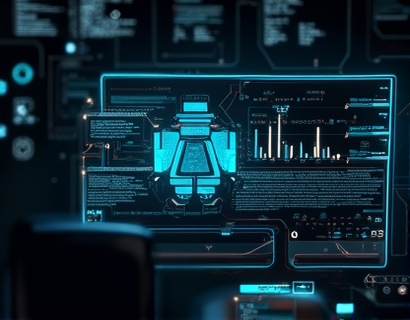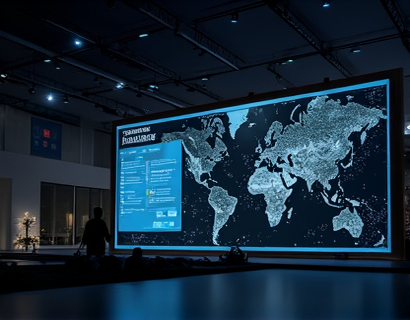AI-Powered Urban Insights: Revolutionizing Smart Living and Sustainable Development
In the rapidly evolving landscape of urban development, the integration of artificial intelligence (AI) into city planning and management is becoming increasingly vital. As cities grow and face challenges such as population density, resource management, and environmental sustainability, the need for innovative solutions is paramount. AI-powered platforms are emerging as essential tools for urban innovators and educators, providing specialized insights into smart city services and industry trends. This article explores how an AI chat interface can enhance understanding and engagement in smart living and sustainable development, particularly in educational settings.
The Role of AI in Smart Cities
Smart cities leverage technology to improve the quality of life for their residents. AI plays a crucial role in this transformation by enabling data-driven decision-making, optimizing urban services, and fostering sustainable practices. From traffic management to waste disposal, AI applications are designed to enhance efficiency and reduce environmental impact. By analyzing vast amounts of data, AI can identify patterns and trends that inform urban planning and policy-making.
Data-Driven Decision Making
One of the primary advantages of AI in smart cities is its ability to process and analyze data in real-time. This capability allows city officials to make informed decisions based on current conditions rather than relying on outdated information. For instance, AI can analyze traffic patterns to optimize signal timings, reducing congestion and improving air quality. Similarly, AI can monitor energy consumption across the city, identifying areas where efficiency can be improved.
Enhancing Urban Services
AI technologies can significantly enhance urban services, making them more responsive to the needs of residents. For example, AI-powered chatbots can provide instant information about public transportation schedules, local events, and city services. This accessibility empowers citizens to engage more actively with their communities. Additionally, AI can streamline processes such as permit applications and service requests, reducing wait times and improving overall satisfaction.
AI Chat Interfaces: A Gateway to Urban Insights
An AI chat interface serves as a user-friendly platform for individuals to interact with urban data and receive specialized information about smart city services. This technology democratizes access to knowledge, allowing users to ask questions and receive tailored responses. Whether for urban innovators seeking industry trends or educators looking for teaching resources, an AI chat interface can provide valuable insights.
Engaging Urban Innovators
Urban innovators, including city planners, architects, and policymakers, can benefit immensely from AI chat platforms. These tools can provide real-time data on urban development trends, best practices, and case studies from around the world. By engaging with an AI chat interface, innovators can stay informed about the latest advancements in smart city technologies and apply this knowledge to their projects.
Supporting Educators and Students
In educational settings, AI chat interfaces can serve as powerful learning tools. By offering a child-friendly version, these platforms ensure that students can safely explore topics related to smart cities and sustainable development. Educators can use AI chatbots to supplement their teaching materials, providing students with interactive learning experiences that foster curiosity and critical thinking.
Content Verification for Accuracy
One of the key features of an effective AI chat platform is content verification. Ensuring that the information provided is accurate and reliable is essential, especially in educational contexts. By implementing rigorous verification processes, AI chat interfaces can deliver trustworthy insights that users can depend on. This commitment to accuracy not only enhances the learning experience but also builds trust among users.
Safe Learning Environments for Children
Creating a safe and engaging learning environment is crucial when introducing technology to children. An AI chat interface designed for younger audiences can filter content to ensure it is age-appropriate and educational. This approach allows children to explore complex topics related to urban living and sustainability in a manner that is both safe and engaging. By fostering a sense of curiosity, educators can inspire the next generation of urban innovators.
Exploring Sustainable Urban Development
Sustainable development is at the heart of smart city initiatives. As urban areas continue to expand, the need for sustainable practices becomes increasingly urgent. AI-powered platforms can provide insights into sustainable urban development strategies, helping cities reduce their carbon footprint and enhance the quality of life for residents.
Smart Energy Management
Energy consumption is a significant concern for urban areas. AI can optimize energy usage by analyzing consumption patterns and identifying opportunities for efficiency improvements. For instance, smart grids powered by AI can balance energy supply and demand in real-time, reducing waste and lowering costs. By promoting renewable energy sources and energy-efficient practices, cities can move towards a more sustainable future.
Waste Management Solutions
Effective waste management is another critical aspect of sustainable urban development. AI technologies can enhance waste collection processes by predicting when bins will be full and optimizing collection routes. This not only reduces operational costs but also minimizes the environmental impact of waste disposal. By implementing smart waste management systems, cities can promote recycling and reduce landfill usage.
Fostering Community Engagement
Community engagement is essential for the success of smart city initiatives. AI chat interfaces can facilitate communication between city officials and residents, allowing for a two-way exchange of information. By providing a platform for residents to voice their concerns and suggestions, cities can foster a sense of ownership and involvement in the decision-making process.
Gathering Public Feedback
AI chatbots can be used to gather public feedback on various urban initiatives, from transportation projects to community events. By analyzing this feedback, city officials can gain valuable insights into the needs and preferences of their residents. This data-driven approach ensures that urban development aligns with the desires of the community, ultimately leading to more successful outcomes.
Promoting Civic Participation
Encouraging civic participation is vital for building strong communities. AI chat interfaces can provide information about local governance, upcoming elections, and community events, empowering residents to get involved. By making civic information easily accessible, cities can inspire greater participation and engagement among their citizens.
Conclusion: The Future of Urban Living
The integration of AI into urban development represents a significant shift in how cities operate and engage with their residents. By providing specialized insights into smart city services and industry trends, AI chat interfaces are revolutionizing the way urban innovators and educators approach sustainable development. With a focus on content verification and child-friendly learning experiences, these platforms are paving the way for a more informed and engaged citizenry. As we look to the future, the potential for AI to enhance urban living and promote sustainability is limitless. By embracing these technologies, cities can create environments that are not only smarter but also more inclusive and sustainable for generations to come.











































